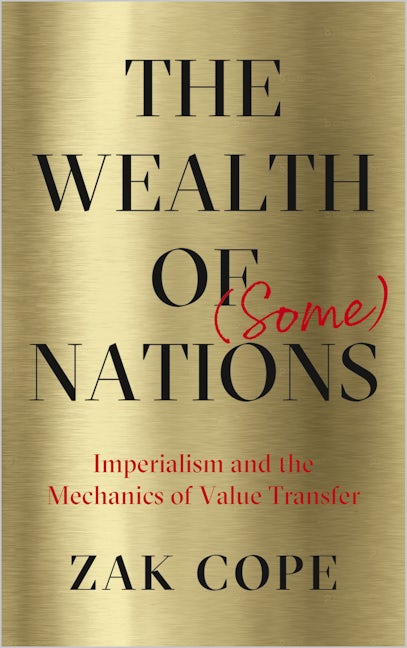
The Wealth of (Some) Nations
Imperialism and the Mechanics of Value Transfer
Cope makes the controversial claim that it is because of these conditions that workers in rich countries benefit from higher incomes and welfare systems with public health, education, pensions and social security. As a result, the internationalism of populations in the Global North is weakened and transnational solidarity is compromised.
The only way forward, Cope argues, is through a renewed anti-imperialist politics rooted in a firm commitment to a radical labour internationalism.
Zak Cope is the author of The Wealth of (Some) Nations (Pluto, 2019) Divided World Divided Class: Global Political Economy and the Stratification of Labour Under Capitalism (Kersplebedeb, 2015), He is co-editor of the Journal of Labor and Society and the Encyclopedia of Imperialism and Anti-Imperialism.
List of Figures and Tables
Acknowledgements
Introduction
Part I - The Mechanics of Imperialism
1. Value Transfer
2. Colonial Tribute
3. Monopoly Rent
4. Unequal Exchange
Part II - The Econometrics of Imperialism
5. Imperialism and Its Denial
6. Measuring Imperialist Value Transfer
7. Measuring Colonial Value Transfer
8. Comparing Value Transfer to Profits, Wages and Capital
Part III - Foundations of the Labour Aristocracy
9. Anti-Imperialist Marxism and the Wages of Imperialism
10. The Metropolitan Labour Aristocracy
11. The Native Labour Aristocracy
Part IV - Social Imperialism Past and Present
12. Social Imperialism before the First World War
13. Social Imperialism after the First World War
14. Social-Imperialist Marxism
15. Conclusion: Imperialism and Anti-Imperialism Today
Appendix: Physical Quality of Life in Capitalist and Socialist Countries
Notes
Bibliography
Index
eBook ISBN: 9781786804181
150mm x 230mm

